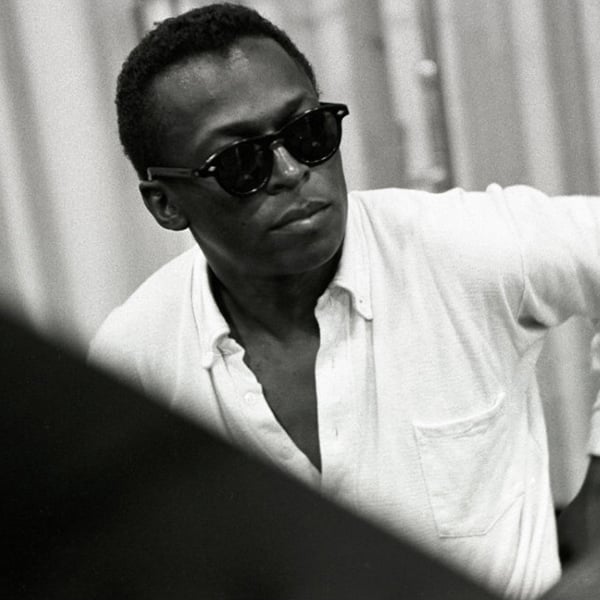
As other bands led by Miles were recorded overseas, so did the Second Great Quintet. Miles in Berlin in fact is its birth announcement—tenor saxophonist Wayne Shorter had joined just a few gigs before, and was just getting familiar with new bandmates, taking the temperature.
Shorter had arrived from Art Blakey’s Jazz Messengers, but had been recommended years before to Miles by John Coltrane. After the long delay, Miles phoned the saxophonist backstage one night in 1964 and Blakey himself answered, knowing full well why he was calling and passed the phone to Shorter. He joined just as Miles started another European tour.
Their second concert took place on September 25, 1964 in Berlin’s Philharmonie Hall, just west of the Berlin Wall. One can hear in the music from how hard the musicians are listening to one other, testing out ideas and starting to take chances. Take “Autumn Leaves”: Miles’ playing of the theme is teasingly abstract and filled with melodic asides—Hancock playfully runs alongside one—and then brief; his subsequent solo goes on-mic, off-mic at will, finding and all but disappears then returns with a roar. Shorter’s turn follows and its as if Miles’ solo was to show him how free he could be with the music. His solo is bouncy and jaunty, his more slivery tone a marked change from George Coleman’s and Sam Rivers’. At the end he locks into a groove with Hancock that makes it seem they’ve played together for years.
The magic was immediately evident. In his autobiography, Miles recalled what his old friend (and saxophonist briefly in 1959) Jimmy Heath said about the Second Great Quintet. “Man, they’re great, but I wouldn’t want to be getting up there playing with them every night. Miles, them motherfuckers are gonna set everybody on fire!”
“That’s just what I thought,” Miles wrote. “Only I found myself loving to play with them. Man, they were so quick to catch on to everything…”






